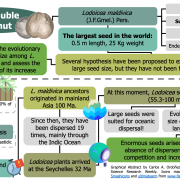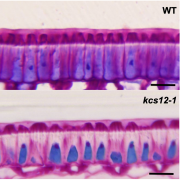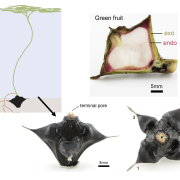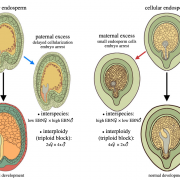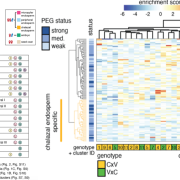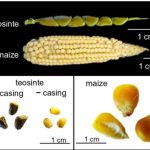Flash flaming enhances mechanized seed sowing for ecological restoration
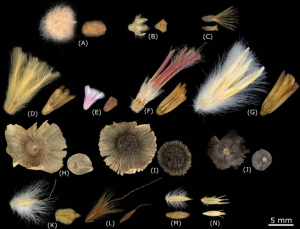 One of the main challenges of seed-based restoration is incorporating seeds from as wide a variety of species as possible. However, the seeds of some species have shapes or appendages that make it challenging to use specialized machinery for direct seeding, which hinders large-scale restoration projects and may lead to the exclusion of certain species. In this research, Ling and colleagues show that flash flaming (i.e., sequentially exposing seeds to short-duration heating events) is a promising tool for processing seeds of 16 species widely used in ecological restoration in Western Australia. The technique reduced the volume and increased the flowability of all species’ seeds without negatively affecting most species’ germination or seed viability. In fact, the germination of two species increased after its flaming, suggesting it contributed to breaking their dormancy. The optimal flaming parameters –such as the number of flames, flame type, and duration– were species-specific, highlighting the need to standardize the technique with every new species. Still, this study provides exciting results that could spark and facilitate the use of more species in seed-based restoration efforts. (Summary by Carlos A. Ordóñez-Parra @caordonezparra) Seed Sci. Technol. 10.15258/sst.2022.50.3.10
One of the main challenges of seed-based restoration is incorporating seeds from as wide a variety of species as possible. However, the seeds of some species have shapes or appendages that make it challenging to use specialized machinery for direct seeding, which hinders large-scale restoration projects and may lead to the exclusion of certain species. In this research, Ling and colleagues show that flash flaming (i.e., sequentially exposing seeds to short-duration heating events) is a promising tool for processing seeds of 16 species widely used in ecological restoration in Western Australia. The technique reduced the volume and increased the flowability of all species’ seeds without negatively affecting most species’ germination or seed viability. In fact, the germination of two species increased after its flaming, suggesting it contributed to breaking their dormancy. The optimal flaming parameters –such as the number of flames, flame type, and duration– were species-specific, highlighting the need to standardize the technique with every new species. Still, this study provides exciting results that could spark and facilitate the use of more species in seed-based restoration efforts. (Summary by Carlos A. Ordóñez-Parra @caordonezparra) Seed Sci. Technol. 10.15258/sst.2022.50.3.10



